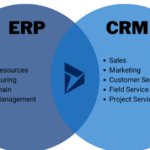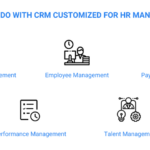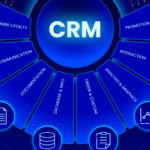B2B companies, particularly those with smaller operations, have a lot to gain from this. There are now tools available to you that were previously only available to large B2C companies. Particularly, you can access massive amounts of buyer information (if you choose to do so). The sales and marketing strategies of many small businesses do not take advantage of this data. Think again if you’ve deemed customer relationship management (CRM) as an unnecessary expense (or out of reach for your small- to medium-sized business).
In addition to constantly creating massive amounts of customer data, predictive analytics are also becoming more sophisticated. In other words, the right tools can help you increase the productivity and efficiency of your sales and marketing efforts. CRMs will enable you to do things like provide prospects with the most relevant content, better gauge which prospects are likely to become high-value customers, and determine the next steps to take to help leads further along in the sales process.
You need to serve them with the right messages at the right time, in order to encourage them in the next step of the buying process. Most of the people on your site are not in buying mode, so it’s essential you provide them with the right messages at the right time. The “right messages” might include product information, demo offers, or expert lead magnets, according to their purchasing stage.
Small businesses need to understand CRM
CRM marketing is disproportionately beneficial to smaller companies. Small business CRM software ensures warm leads are qualified and nurtured to the point where they’re most likely to become loyal customers by removing much of the guesswork of managing leads and customers. The customer journey can also be tracked, identifying risks and patterns along the way, and learning which steps are most likely to encourage the customer through the sales funnel CRM software.
Even better, many CRM solutions today provide sales and marketing automation features. You will be able to trigger and automate processes that previously had to be handled in a manual manner. When a potential customer downloads a premium piece of content, a follow-up email or series of follow-up calls can be initiated by a member of the sales development team.
What are the benefits of sales funnel CRM software?
In a sales funnel, the steps needed to sell a product or service are visually depicted. There is a list showing the number of open deals, the stage of each, what assistance you need, and how well you are doing.
CRM Runner is an effective tool for managing sales funnels.
- An overview of all leads organized based on their stage in the Sales Funnel.
- Leads are positioned at the correct level as they progress using the drag and drop feature.
- Review the lead’s contact information and update it as needed.
- The leads can be rescheduled by contacting you or by meeting with you.
- To specific members of your team or departments, send emails regarding leads.
- By selecting the department and the teams, you can customize the assignment settings.
- Each time a lead moves through the sales funnel, your team will be notified via email and push notifications.
The sales funnel CRM software module in CRM Runner streamlines sales processes through its sales funnel. It allows you to group leads into different categories. You’ll see which leads you to need to follow up on, which ones have agreed to buy, and which ones have already sent their money. You can then use CRM Runner to automatically create a sales report to see what needs to be improved in your funnel.
Next Steps
B2B companies now have access to the kinds of data and analytics that were previously only available to giants in the consumer market. By carefully choosing your CRM platform, you can take advantage of data that are already at your fingertips, saving considerable time and money while enhancing customer service.






0 Comments